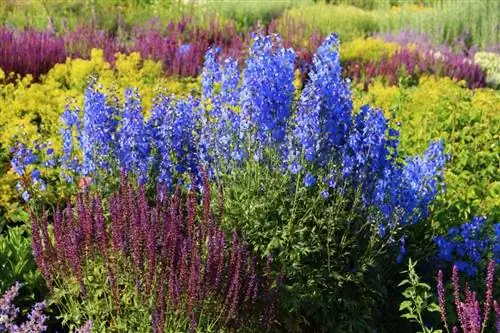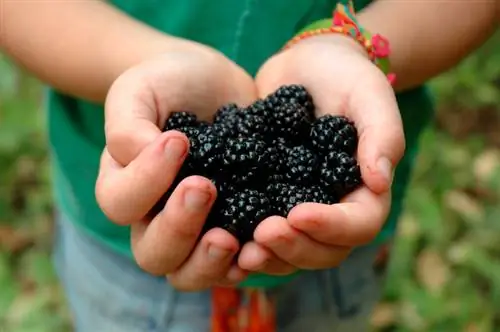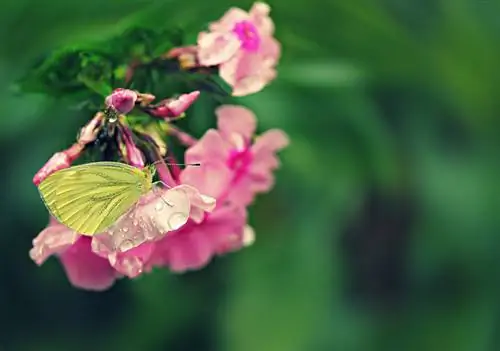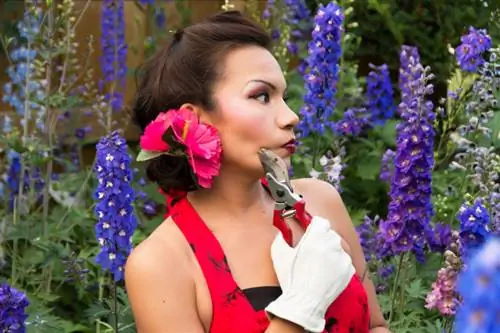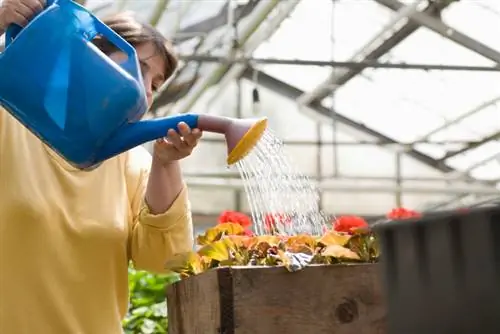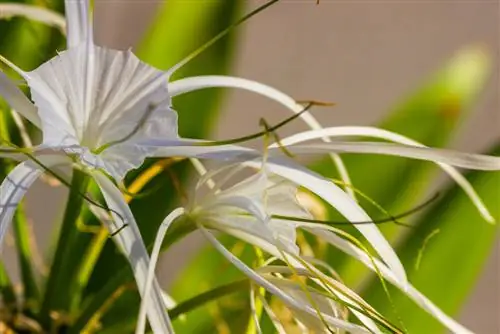- Author admin leonars@hobbygardeners.com.
- Public 2023-12-16 16:46.
- Last modified 2025-01-23 11:20.
The delphinium, also known as delphinium by gardeners, is a noble and very vigorous plant that has been found in German cottage gardens for many centuries. In order for the wonderful perennial to grow properly and bloom vigorously, it must be sufficiently fertilized with nutrients.
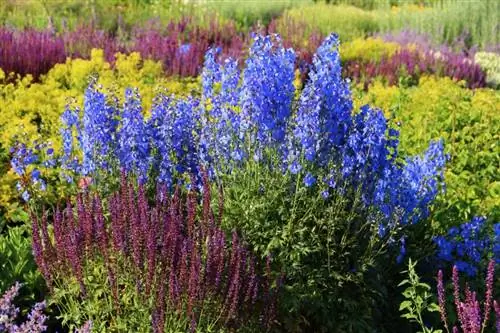
How and when should you fertilize delphiniums?
Dark spur should be supplied with organic fertilizer such as mature compost, horn shavings and stone dust twice a year: once in spring and once after autumn pruning. Potted larkspur requires liquid flowering plant or universal fertilizer every 10-14 days during the growth phase from March to September.
Provide compost twice a year
Delphinium perennials planted in the garden basically do not need to be supplied with mineral fertilizer (e.g. liquid fertilizer), at least if it is a perennial variety and the garden soil contains plenty of humus. Instead, perennial larkspur is supplied with organic fertilizer twice a year, using mature mixed compost, horn shavings and stone dust (or a mixture of the components mentioned).
Fertilize delphiniums properly
The perennial should be mulched with organic fertilizer both in spring, before budding, and after pruning in autumn. It is important to work compost etc. into the soil well and carefully, but without damaging the roots. If necessary, another dose can be given after the dead larkspur has been cut back in summer to stimulate a second flowering. If you are unsure about the amount and composition of fertilizer, have a soil test carried out.
Fertilize delphiniums in the pot
The noble delphinium is often cultivated in a pot to protect the plant from the voracious snails - which particularly like to eat the plant's delicate foliage. In contrast to planted delphiniums, specimens kept in pots need regular fertilizer.
Which fertilizer to use for potted larkspur?
In this case, organic fertilizers are not sufficient; instead, it is best to use liquid fertilizer for flowering plants (€14.00 on Amazon). But a commercially available universal fertilizer is also completely sufficient. Fertilize approximately every 10 to 14 days between the beginning of March and the beginning/mid-September by adding the liquid fertilizer mixed with the irrigation water.
Tips & Tricks
In addition to ripe compost and horn shavings, delphinium also benefits very well from rotted horse manure, because it offers exactly the right nutrients in the right composition.

